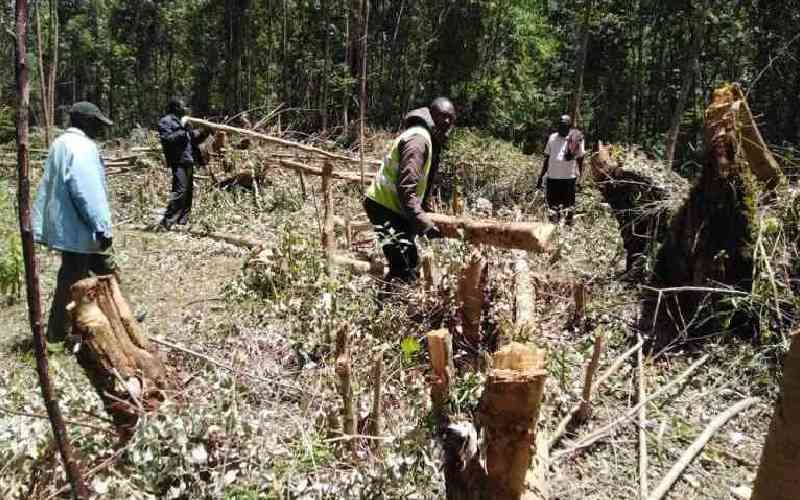×
The Standard e-Paper
Home To Bold Columnists

Saw millers and traders in Nyeri County have welcomed government plans to lift a six-year ban on logging.
They say the move will help save timber industry from imminent collapse and create jobs. The national moratorium was imposed to restrict extraction of timber from public and community forests, in a bid to protect and conserve water towers.